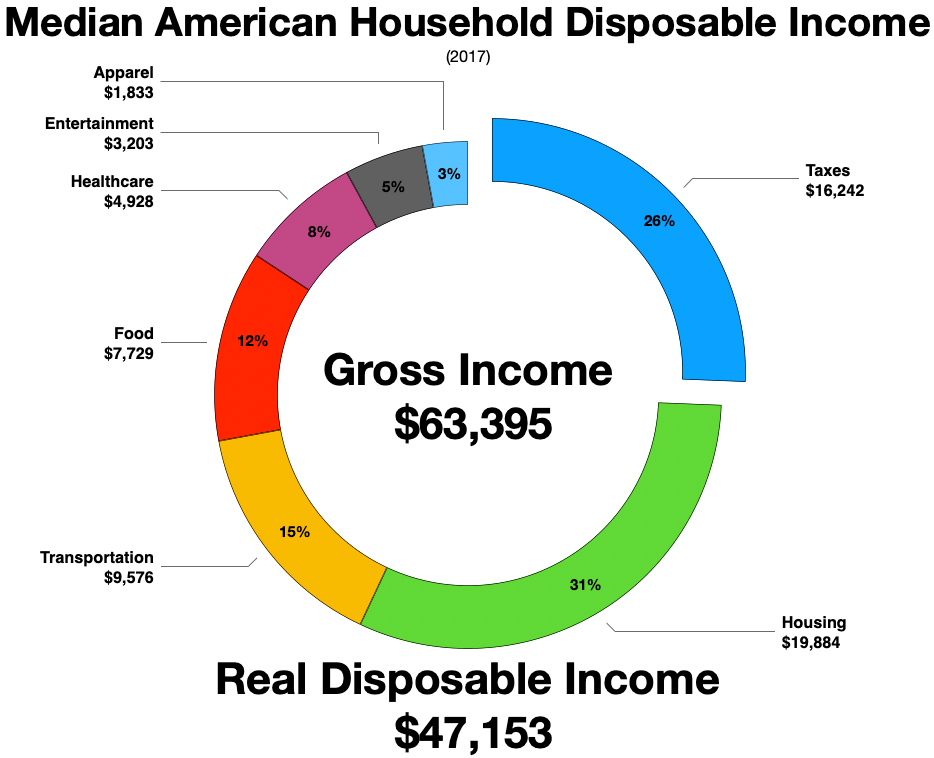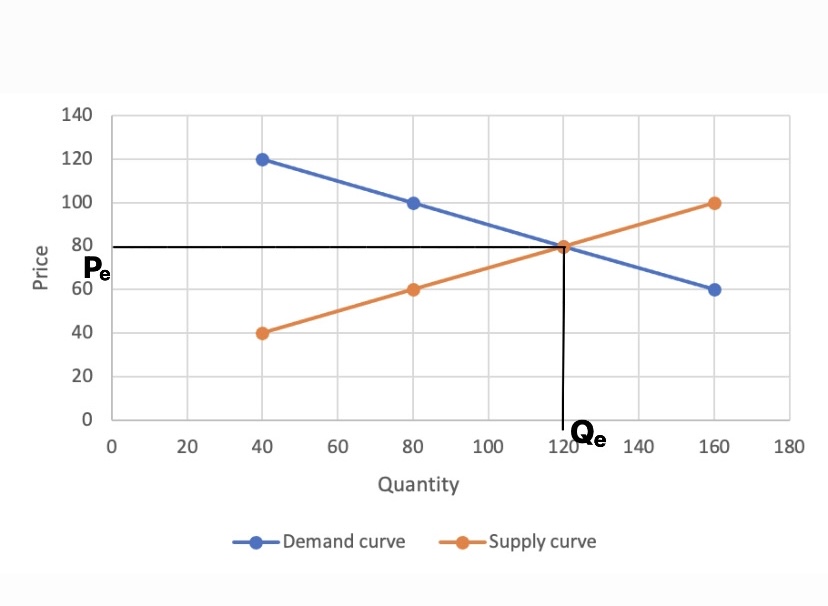|
Income
Income is the consumption and saving opportunity gained by an entity within a specified timeframe, which is generally expressed in monetary terms. Income is difficult to define conceptually and the definition may be different across fields. For example, a person's income in an economic sense may be different from their income as defined by law. An extremely important definition of income is Haig–Simons income, which defines income as ''Consumption + Change in net worth'' and is widely used in economics. For households and individuals in the United States, income is defined by tax law as a sum that includes any wage, salary, profit, interest payment, rent, or other form of earnings received in a calendar year.Case, K. & Fair, R. (2007). ''Principles of Economics''. Upper Saddle River, NJ: Pearson Education. p. 54. Discretionary income is often defined as gross income minus taxes and other deductions (such as mandatory pension contributions), and is widely used as a ... [...More Info...] [...Related Items...] OR: [Wikipedia] [Google] [Baidu] [Amazon] |
Supplemental Security Income
Supplemental Security Income (SSI) is a means-tested program that provides cash payments to disabled children, disabled adults, and individuals aged 65 or older who are citizens or nationals of the United States. SSI was created by the Social Security Amendments of 1972 and is incorporated in Title 16 of the Social Security Act. The program is administered by the Social Security Administration (SSA) and began operations in 1974. Individuals or their helpers may start the application for SSI benefits by completing a short form on SSA's website. SSA staff will schedule an appointment for the individual or helper within one to two weeks and complete the process. SSI was created to replace federal-state adult assistance programs that served the same purpose, but were administered by the state agencies and received criticism for lacking consistent eligibility criteria. The restructuring of these programs was intended to standardize the eligibility requirements and level of benefits ... [...More Info...] [...Related Items...] OR: [Wikipedia] [Google] [Baidu] [Amazon] |
Haig–Simons Income
Haig–Simons income or Schanz–Haig–Simons income is an income measure used by public finance economists to analyze economic well-being which defines income as consumption plus change in net worth. It is represented by the mathematical formula: :I = ''C'' + Δ''NW'' where ''C'' = consumption and Δ''NW'' = change in net worth. Consumption refers to the money spent on goods and services of any kind. From a perfect theory view, consumption does not include capital expenditures, and the full spending would be amortized. History The measure of the income tax base equal to the sum of consumption and change in net worth was first advocated by German legal scholar Georg von Schanz. His concept was further developed by the American economists Robert M. Haig and Henry C. Simons in the 1920s and 1930s. Haig defined personal income as "the money value of the net accretion to one's economic power between two points of time," a formulation that was intended to include the taxpay ... [...More Info...] [...Related Items...] OR: [Wikipedia] [Google] [Baidu] [Amazon] |
Permanent Income Hypothesis
The permanent income hypothesis (PIH) is a model in the field of economics to explain the consumption function, formation of consumption patterns. It suggests consumption patterns are formed from future expectations and consumption smoothing. The theory was developed by Milton Friedman and published in his ''A Theory of the Consumption Function'', published in 1957 and subsequently formalized by Robert Hall (economist), Robert Hall in a rational expectations model. Originally applied to Consumption (economics), consumption and income, the process of future expectations is thought to influence other phenomena. In its simplest form, the hypothesis states changes in permanent income (human capital, property, assets), rather than changes in temporary income (unexpected income), are what drive changes in consumption. The formation of consumption patterns opposite to predictions was an outstanding problem faced by the Neoclassical synthesis, Keynesian orthodoxy. Friedman's predictions o ... [...More Info...] [...Related Items...] OR: [Wikipedia] [Google] [Baidu] [Amazon] |
Discretionary Income
Disposable income is total personal income minus current taxes on income. In national accounting, personal income minus personal current taxes equals disposable personal income or household disposable income. Subtracting personal outlays (which includes the major category of personal r privateconsumption expenditure) yields personal (or, private) savings, hence the income left after paying away all the taxes is referred to as disposable income. Restated, consumption expenditure plus savings equals disposable income after accounting for transfers such as payments to children in school or elderly parents' living and care arrangements. The marginal propensity to consume (MPC) is the fraction of a change in disposable income that is consumed. For example, if disposable income rises by $100, and $65 of that $100 is consumed, the MPC is 65%. Restated, the marginal propensity to save is 35%. For the purposes of calculating the amount of income subject to garnishments, United ... [...More Info...] [...Related Items...] OR: [Wikipedia] [Google] [Baidu] [Amazon] |
Consumption (economics)
Consumption refers to the use of resources to fulfill present needs and desires. It is seen in contrast to investing, which is spending for acquisition of ''future'' income. Consumption is a major concept in economics and is also studied in many other social sciences. Different schools of economists define consumption differently. According to mainstream economics, mainstream economists, only the final purchase of newly produced Good (economics), goods and Service (economics), services by individuals for immediate use constitutes consumption, while other types of expenditure — in particular, fixed investment, intermediate consumption, and government spending — are placed in separate categories (see consumer choice). Other economists define consumption much more broadly, as the aggregate of all economic activity that does not entail the design, production and marketing of goods and services (e.g., the selection, adoption, use, disposal and recycling of goods and services). E ... [...More Info...] [...Related Items...] OR: [Wikipedia] [Google] [Baidu] [Amazon] |
Pension
A pension (; ) is a fund into which amounts are paid regularly during an individual's working career, and from which periodic payments are made to support the person's retirement from work. A pension may be either a " defined benefit plan", where defined periodic payments are made in retirement and the sponsor of the scheme (e.g. the employer) must make further payments into the fund if necessary to support these defined retirement payments, or a " defined contribution plan", under which defined amounts are paid in during working life, and the retirement payments are whatever can be afforded from the fund. Pensions should not be confused with severance pay; the former is usually paid in regular amounts for life after retirement, while the latter is typically paid as a fixed amount after involuntary termination of employment before retirement. The terms " retirement plan" and " superannuation" tend to refer to a pension granted upon retirement of the individual; the terminolog ... [...More Info...] [...Related Items...] OR: [Wikipedia] [Google] [Baidu] [Amazon] |
Law Of Demand
In microeconomics, the law of demand is a fundamental principle which states that there is an inverse relationship between price and quantity demanded. In other words, "conditional on ceteris paribus, all else being equal, as the price of a Goods, good increases (↑), quantity demanded will decrease (↓); conversely, as the price of a good decreases (↓), quantity demanded will increase (↑)". Alfred Marshall worded this as: "When we say that a person's demand for anything increases, we mean that he will buy more of it than he would before at the same price, and that he will buy as much of it as before at a higher price". The law of demand, however, only makes a qualitative statement in the sense that it describes the direction of change in the amount of quantity demanded but not the magnitude of change. The law of demand is represented by a graph called the demand curve, with quantity demanded on the x-axis and price on the y-axis. Demand curves are downward sloping by defin ... [...More Info...] [...Related Items...] OR: [Wikipedia] [Google] [Baidu] [Amazon] |
Public Economics
Public economics ''(or economics of the public sector)'' is the study of government policy through the lens of economic efficiency and Equity (economics), equity. Public economics builds on the theory of welfare economics and is ultimately used as a tool to improve social welfare. Welfare can be defined in terms of well-being, prosperity, and overall state of being. Public economics provides a framework for thinking about whether or not the government should participate in economic markets and if so to what extent it should do so. Microeconomic theory is utilized to assess whether the private market (economics), market is likely to provide efficient outcomes in the absence of governmental interference; this study involves the analysis of government taxation and government spending, expenditures. This subject encompasses a host of topics notably market failures such as, Public good (economics), public goods, externalities and Imperfect competition, Imperfect Competition, and the cr ... [...More Info...] [...Related Items...] OR: [Wikipedia] [Google] [Baidu] [Amazon] |
United States
The United States of America (USA), also known as the United States (U.S.) or America, is a country primarily located in North America. It is a federal republic of 50 U.S. state, states and a federal capital district, Washington, D.C. The 48 contiguous states border Canada to the north and Mexico to the south, with the semi-exclave of Alaska in the northwest and the archipelago of Hawaii in the Pacific Ocean. The United States asserts sovereignty over five Territories of the United States, major island territories and United States Minor Outlying Islands, various uninhabited islands in Oceania and the Caribbean. It is a megadiverse country, with the world's List of countries and dependencies by area, third-largest land area and List of countries and dependencies by population, third-largest population, exceeding 340 million. Its three Metropolitan statistical areas by population, largest metropolitan areas are New York metropolitan area, New York, Greater Los Angeles, Los Angel ... [...More Info...] [...Related Items...] OR: [Wikipedia] [Google] [Baidu] [Amazon] |
Net Income
In business and Accountancy, accounting, net income (also total comprehensive income, net earnings, net profit, bottom line, sales profit, or credit sales) is an entity's income minus cost of goods sold, expenses, depreciation and Amortization (accounting), amortization, interest, and taxes, and other expenses for an accounting period. It is computed as the residual of all revenues and gains less all expenses and losses for the period,Weil, Schipper, Francis. (2009) Financial Accounting: An Introduction to Concepts, Methods, and Uses. Cengage Learning and has also been defined as the net increase in Equity (finance), shareholders' equity that results from a company's operations.Weil, Schipper, Francis. (2010) Financial Accounting. Cengage Learning. It is different from gross income, which only deducts the cost of goods sold from revenue. For Household, households and individuals, net income refers to the (gross) income minus taxes and other deductions (e.g. mandatory pension cont ... [...More Info...] [...Related Items...] OR: [Wikipedia] [Google] [Baidu] [Amazon] |
John Hicks
Sir John Richard Hicks (8 April 1904 – 20 May 1989) was a British economist. He is considered one of the most important and influential economists of the twentieth century. The most familiar of his many contributions in the field of economics were his statement of consumer demand theory in microeconomics, and the IS–LM model (1937), which summarised a Keynesian view of macroeconomics. His book '' Value and Capital'' (1939) significantly extended general-equilibrium and value theory. The compensated demand function is named the Hicksian demand function in memory of him. In 1972 he received the Nobel Memorial Prize in Economic Sciences (jointly) for his pioneering contributions to general equilibrium theory and welfare theory. Early life Hicks was born in 1904 in Warwick, England, and was the son of Edward Hicks, editor and part proprietor of the Warwick and Leamington Spa Courier newspaper, and Dorothy Catherine, née Stephens, daughter of a non-conformist minister ... [...More Info...] [...Related Items...] OR: [Wikipedia] [Google] [Baidu] [Amazon] |
Consumer Theory
The theory of consumer choice is the branch of microeconomics that relates preferences to consumption expenditures and to consumer demand curves. It analyzes how consumers maximize the desirability of their consumption (as measured by their preferences subject to limitations on their expenditures), by maximizing utility subject to a consumer budget constraint. Factors influencing consumers' evaluation of the utility of goods include: income level, cultural factors, product information and physio-psychological factors. Consumption is separated from production, logically, because two different economic agents are involved. In the first case, consumption is determined by the individual. Their specific tastes or preferences determine the amount of utility they derive from goods and services they consume. In the second case, a producer has different motives to the consumer in that they are focussed on the profit they make. This is explained further by producer theory. The models ... [...More Info...] [...Related Items...] OR: [Wikipedia] [Google] [Baidu] [Amazon] |




